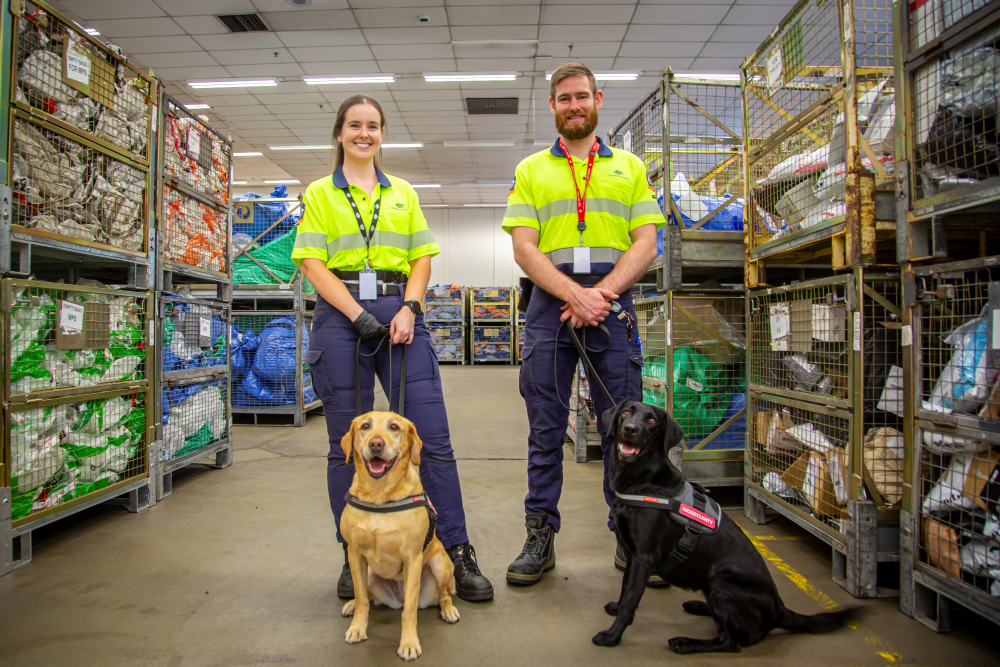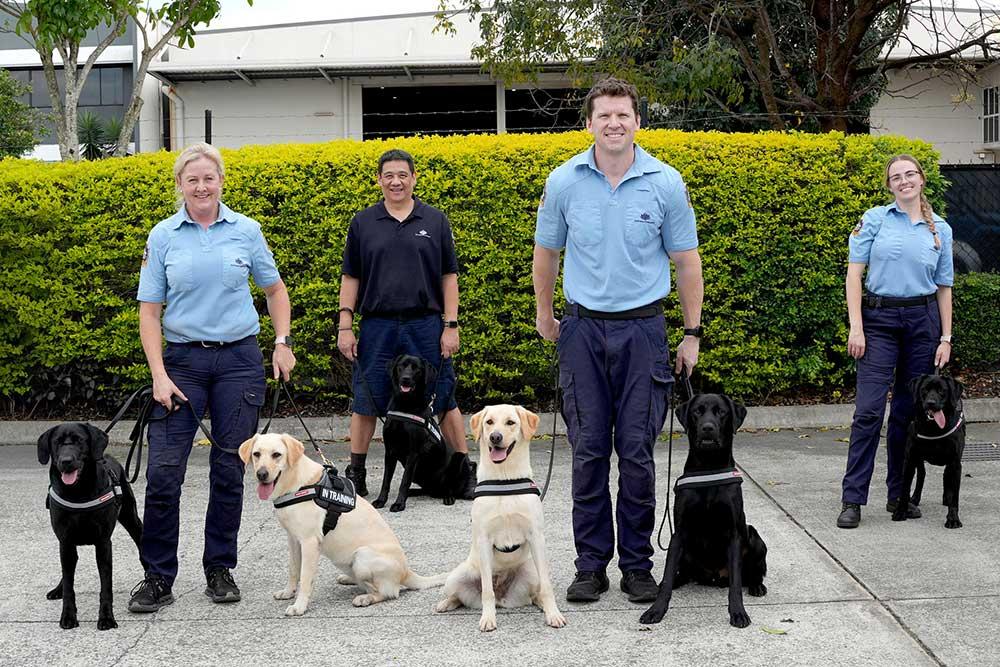The Department of Agriculture, Fisheries and Forestry has announced biosecurity detector dog Qubit as the ‘Top Dog’ of 2022.
Acting Secretary of the Department and acting Director of Biosecurity, Dr Chris Locke, said the department awards the ‘Top Dog’ title to a detector dog and handler team who have significantly contributed to Australia’s biosecurity efforts.
The 2022 title was given to Qubit and handler Sam for their contribution to protecting Australia against biosecurity threats including foot and mouth disease (FMD) in Melbourne Airport and the Melbourne Mail Gateway.
“Qubit and Sam sniffed out and seized more FMD risk material—meat and dairy products—than any other biosecurity dog team last year,” said Dr Locke.
“Together they intercepted 126 products with the potential to carry FMD and seized 765 individual biosecurity risk items.
“In 2022 we saw the threat of FMD and lumpy skin disease grow as it was detected in our near neighbour, Indonesia.
“In response, the biosecurity detector dog program expanded the detector dog target odours to include dairy products, which have a greater risk of carrying exotic diseases including FMD.
“The department currently has 46 Labradors working as biosecurity detector dogs across Australia’s international airports, mail centres and seaports. This will increase to 62 Labradors over the next two years.
“Biosecurity detector dogs are a vital part of our biosecurity defence at the border. They are teamed with our detector dog handlers, who are biosecurity officers with specialised skills to effectively train and deploy a detector dog.
“Together, they do a great job of protecting Australia alongside the other measures we deploy to mitigate risk of exotic pests and diseases.”
Special mentions were also awarded to other biosecurity dog teams. ‘Most Versatile’ was given to Detector Dog Vespa in Sydney who, with her handlers, found the widest range of commodities (124 different commodities across her 635 individual risk items seized).
‘Rookie of the Year’ was awarded to Detector Dog Emma in Sydney who sniffed out 278 individual risk items since her graduation in August 2022. This equates to almost 3 seizures per operational workday.
The October budget included funding for an extra 20 dogs and their handlers on the frontline. The first four of that new cohort recently graduated from their 8-week novice training course at a specialised facility in Brisbane.
Fast Facts:
- In 2022 Biosecurity Detector Dogs screened 6.2 million mail items and over 850,000 travellers entering Australia.
- In 2022 Biosecurity Detector Dogs intercepted approximately 10,700 mail articles and 14,600 travellers carrying biosecurity risk items.
- Biosecurity Detector Dogs are trained to detect over 250 individual biosecurity risk items, from fruit and meat to plants and exotic pests.
- Biosecurity Detector Dogs are deployed to screen incoming people and goods in Australia’s international airports, ports and mail centres.
Top Dog: Qubit
- Intercepted the largest number of FMD risk items in 2022
- Location: Melbourne
- Handler: Sam Watson
- 126 interceptions of goods with potential to carry FMD
- 765 individual risk items seized.
Most Versatile: Vespa
- Intercepted the broadest range of risk items in 2022
- Location: Sydney
- 124 different commodities intercepted
- 635 individual risk items seized.
Rookie of the Year: Emma
- Achieved most seizures within 5 months of their 2022 graduation
- Location: Sydney
- 278 individual risk items intercepted.
The Detector Dog Handler and Detector Dog Program Lead will be available for interviews, photos and video footage from 15:00 AEDT to 16:30 AEDT this afternoon at Melbourne Airport. Please contact media@aff.gov.au to arrange an interview.



